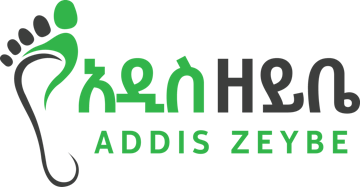Controversy over the capture of military equipment in Gashena
Social media platforms, largely Facebook and Twitter, were last week deluged with images and video clips over claims military equipment had been captured.
Both sides in the Tigray conflict claimed their side had seized military armaments. State-affiliated news outlets such as the Ethiopian Broadcasting Corporate (EBC) and Fana Broadcasting Corporate (FBC) shared the images claiming that heavy military hardware had been taken from the TPLF (Tigray People’s Liberation Front)-forces. It was also reported that the group had suffered heavy human and material losses around Gashena, in Amhara regional state.
It was reported that an attack was mounted on the TPLF forces making the group retreat to North Wollo Zone areas - Estayish, Ahuntegegn, Gashena, Gergera, and Filakit towns. According to the reports, the group was transporting the items, looted from government properties, non-governmental organizations, and from the public, in that area.
However, it was also claimed that the Amhara Special Force and militias, in collaboration with farmers, had attacked the TPLF-forces. The looted property had been abandoned as TPLF forces fled to a nearby town called Ase.
On the other hand, other posts were also circulating at the same time. The posts claimed that the vehicles in the image were captured from the Ethiopian National Defense Forces (ENDF) and aligned forces in Gashena.
A day after the news first broke, allegations arose from TPLF activists saying EBC and FBC were circulating disinformation. As a counterclaim, a video clip was released by TPLF activists and media, which seemed to be recorded by TPLF troops, showing the exact view as the images used before.
HaqCheck was not able to verify the images and clips but believes these controversies fuel information disorder in the media sphere.
High-ranking officials ‘flee’ the country
Viral claims emerged last week alleging that high-ranking federal and regional government officials including diplomats and Prosperity Party-affiliated persons had fled the country. The posts and tweets claimed that the former Amhara regional president and current National Intelligence and Security Service (NISS) director Temesgen Tiruneh filled the country to Germany on the morning of 18 August 2021.
However, images posted on the same day the original claims were published showing Temesgen Tiruneh alongside Prime Minister Abiy Ahmed (Ph.D.) during a one-day working visit to Ankara, Turkey. According to the images, the NISS director went to Turkey with the PM and other government officials on August 18, 2021.
Turkish President’s offer to mediate an end to the Tigray conflict
HaqCheck investigated a Facebook post by the Al Jazeera English Facebook page made on August 19, 2021, and debunked it as misleading. Al Jazeera English, on its Facebook page, shared an article titled ‘Erdogan offers to mediate an end to Ethiopia’s Tigray conflict’.
HaqCheck looked into the title and content of the article on the website and confirmed that the article does not say that the Turkish president Recep Tayyip Erdogan did offer to mediate an end to Ethiopia's Tigray conflict. The titles and content shared on Facebook and on the article on the website have false connections. Therefore, HaqCheck rated the Facebook post as MISLEADING HEADLINE due to the false connection between the post on Facebook and the article on the website.
Flash flood in Addis Ababa
Another social media post that was fact-checked by HaqCheck was a claim which reported that flash floods had killed seven people in Addis Ababa. HaqCheck looked into the images shared in the Facebook post and confirmed that while the information is true, one of the two images used in the post is false and rated the post as PARTLY FALSE.
The false image shared along the post was taken from a report showing rescue workers in Haiti, searching for missing people, due to a recent earthquake that killed more than 2,000 people.
Recommendations
HaqCheck urges the public and social media users to look for information from credible and original sources, official statements, updates, and clarifications from authorities regarding current issues, controversial matters, and social media claims.
The general public should be provided with sufficient information and updates regarding ongoing issues in the country and media organizations and concerned authorities have to do so. More effort, dedication, and transparency are expected from local media in reporting the conflict and related issues.
International media should be more careful about their reporting, especially regarding sensitive issues. A more transparent correction is also required if a mistake is made.
Social media activists, pages, and bloggers should be careful about what they share. Especially when quoting another source, they have to make sure they use the right information and context.
---------------------------------------------------------------------------------------------------------------------------------------------------
HaqCheck is a local multilingual fact-checking project based in Ethiopia, formed inside Addis Zeybe’s newsroom, now Inform Africa’s Counter Disinformation Project - a board-led Civil Society Organization (CSO) - dedicated to verifying media contents from social to the mainstream. HaqCheck works in collaboration with media outlets to monitor media contents in English and four local languages (Amharic, Afaan Oromo, Tigrigna, and Somali).
This report is produced with the support of UNESCO under the #CoronavirusFacts: Addressing the ‘Disinfodemic’ on COVID-19 in conflict-prone Environments that the UNESCO Addis Ababa Office is implementing in Ethiopia with financial support from the European Union (EU). The designations employed and the presentation of material throughout this publication do not imply the expression of any opinion whatsoever on the part of UNESCO or the EU concerning the legal status of any country, territory, city, or area or of its authorities, or concerning the delimitation of its frontiers or boundaries. The ideas and opinions expressed in this publication are those of the authors and do not necessarily reflect the views of UNESCO or The European Union and do not commit these organizations in any way.


